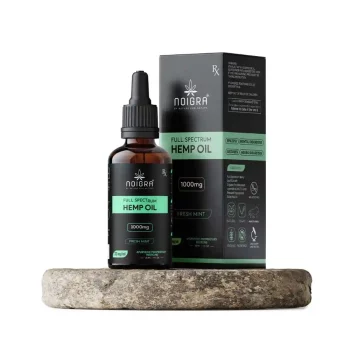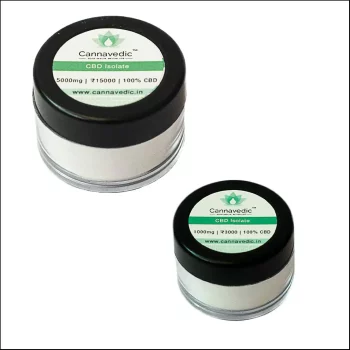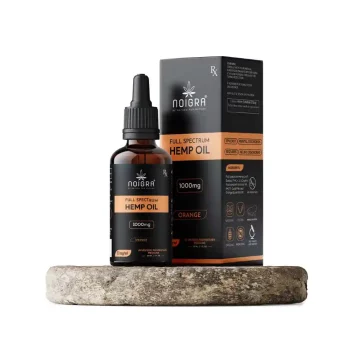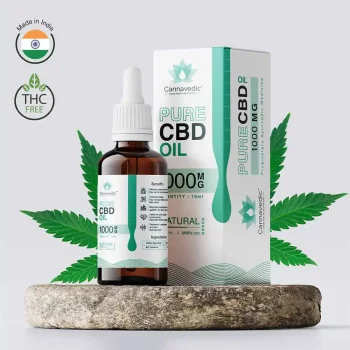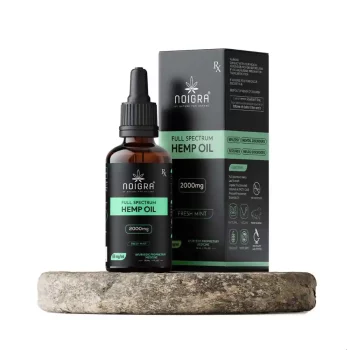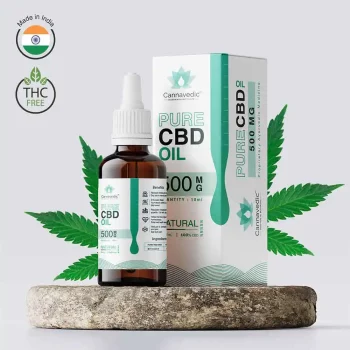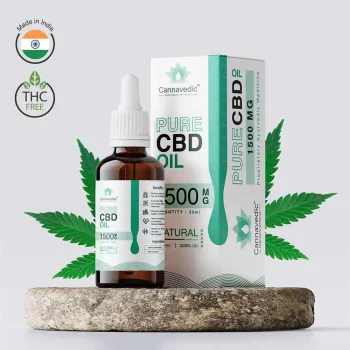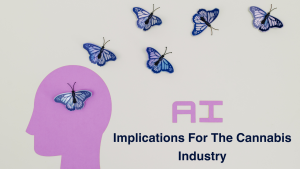What can CBD oil do for insomnia? CBD oil is a plant-based alternative for managing the symptoms of insomnia. It is derived from the cannabis plant but does not get you high. It has medicinal properties that help treat the underlying causes of insomnia.
This article talks about how CBD oil helps with insomnia followed by a guide to where to buy CBD oil for insomnia in India.
Outline
What is Insomnia?
Types of Insomnia
-Acute & Chronic
-Primary & Secondary
-Mild, Moderate, & Severe
Symptoms of Insomnia
Causes of Insomnia
How does CBD help with Insomnia?
Potential Benefits of CBD Oil for Insomnia
Types of CBD Oil for Insomnia in India
How to use CBD Oil for Insomnia?
CBD Oil for Insomnia in India | Dosage Guide
CBD Oil for Insomnia in India | FAQs
Buy CBD Oil for Insomnia in India
What is Insomnia?
Insomnia is a sleep disorder in which individuals find it difficult to fall asleep, stay asleep, or both. Insomnia can be an ongoing or longstanding issue. It may also come and go.
Insomnia can be acute or chronic. Acute insomnia means that you have trouble sleeping only for a short period of time. This can mean a few days or weeks.
Chronic insomnia is when sleep difficulties occur at least 3 times a week for 3 months or longer.
A more scientific way of defining insomnia is with the following diagnostic criteria:
- Difficulty falling asleep, staying asleep, or nonrestorative sleep.
- This difficulty is present despite adequate opportunity and circumstance to sleep.
- This impairment in sleep is associated with daytime impairment or distress.
- This sleep difficulty occurs at least 3 times per week and has been a problem for at least 1 month.
Types of Insomnia
Insomnia can be classified by duration, cause, or severity.
| Basis | Types | |
| Duration | Acute and Chronic | |
| Cause | Primary and Secondary | |
| Severity | Mild, Moderate, and Severe |
Primary insomnia is an issue by itself. That is to say, in this case, insomnia is not linked to any other health condition or problem.
Secondary insomnia is a result of another underlying health condition or problem. Some common illnesses that can cause insomnia are asthma, depression, and arthritis.
Mild insomnia involves a lack of sleep that leads to tiredness or fatigue.
Moderate insomnia may affect daily functioning.
Severe insomnia has a significant impact on a person’s daily life.
While defining the type of insomnia, you may also hear about:
- Sleep-onset insomnia: means that a person has trouble getting to sleep.
- Sleep-maintenance insomnia: happens when a person has trouble staying asleep through the night or wakes up too early.
- Mixed insomnia: when a person has trouble both falling and staying asleep.
- Paradoxical insomnia: is a novel situation where a person underestimates the time for which they’re asleep. They may feel like they sleep a lot less than they actually do.
-
Neet 300mg Broad Spectrum Vijaya Tailam CBD 30ml₹1,999.00
-
Product on saleBroad Spectrum CBD Drops₹1,999.00 – ₹9,999.00
-
Cannavedic CBD Isolate Tincture Icy Mint, 1500mg, 30ml₹4,500.00
-
Product on saleNoigra Full Spectrum Hemp Oil, 1000mg, Mint, 30mlOriginal price was: ₹5,499.00.₹4,999.00Current price is: ₹4,999.00.
-
Cannavedic Pure CBD Isolate Crystals – 1000mg|5000mg₹1,500.00 – ₹6,500.00
-
Product on saleNoigra Full Spectrum Hemp Oil, 2000mg, Orange, 30mlOriginal price was: ₹9,999.00.₹8,999.00Current price is: ₹8,999.00.
-
Product on saleNoigra Full Spectrum Hemp Oil, 1000mg, Orange, 30mlOriginal price was: ₹5,499.00.₹4,999.00Current price is: ₹4,999.00.
-
Neet Suramya 1200mg Broad Spectrum Vijaya Tailam CBD 30ml₹3,999.00
-
Neet Suramya 700mg Broad Spectrum Vijaya Tailam CBD 30ml₹2,999.00
-
Product on saleCannavedic Pure CBD Oil Natural 1000mg | 10mlOriginal price was: ₹2,500.00.₹2,100.00Current price is: ₹2,100.00.
-
Product on saleNoigra Full Spectrum Hemp Oil, 2000mg, Mint, 30mlOriginal price was: ₹9,999.00.₹8,999.00Current price is: ₹8,999.00.
-
Product on saleHemp Hub Broad-spectrum CBD Oil, 4000mg,Original price was: ₹7,760.00.₹4,130.00Current price is: ₹4,130.00.
Symptoms of Insomnia
Some common symptoms of insomnia include:
- Difficulty falling asleep at night.
- Waking up during the night and/or waking up too early.
- Not feeling well-rested after a night’s sleep.
- Irritability, depression, and anxiety/
- Daytime fatigue or sleepiness.
- Increased errors or accidents.
- Difficulty paying attention, focusing on tasks, or remembering
- Ongoing worries about sleep.
Causes of Insomnia
Insomnia could be the primary problem or it may be associated with other medical conditions. Stressful or traumatic life events often disrupt sleep and cause chronic insomnia. Some common causes of chronic insomnia include:
- Stress: worries about work, school, health, finances, etc. may keep your mind active at night, making it difficult to fall asleep. Stressful or traumatic events such as death or illness of a loved one, divorce, loss of job, etc. may also cause insomnia.
- Poor Sleep Habits: irregular bedtime schedules, stimulating activities before bed, an uncomfortable sleep environment, using your bed for work, eating, or watching TV, etc. are some poor sleep habits that can disrupt your sleep cycle.
- Travel or Work Schedule: Our circadian rhythm acts as an internal clock and guides things like as sleep-wake cycle, body temperature, and metabolism. Disrupting the body’s circadian rhythm can lead to insomnia. Some common examples are jet lag from travelling across multiple time zones or working a late or early shift.
- Eating too late in the evening: Late dinners, especially those less than 1 hour from sleep time, can cause you to feel physically uncomfortable while lying down. This may keep you awake.
Chronic insomnia may also be related to other medical conditions or the frequent use of drugs.
- Medications: many prescription drugs interfere with our body’s sleep patterns. Some over-the-counter medications such as pain and allergy medications contain caffeine and other stimulants that can disrupt sleep.
- Mental Health Disorders: anxiety disorders such as PTSD may make it difficult to fall asleep. Waking up too early can be a sign of depression.
- Sleep-related disorders: sleep apnea is a sleep-related disorder that causes you to stop breathing periodically throughout the night, which in turn interrupts your sleep. Restless leg syndrome causes unpleasant sensations in your legs with an irresistible desire to move them, which may prevent you from falling asleep.
- Medical conditions: such as chronic pain, diabetes, asthma, GERD, and Parkinson’s can often make it difficult to fall or stay asleep. Issues such as bladder or prostate problems, that increase the need to urinate during the night, also disrupt sleep.
- Caffeine, nicotine, and alcohol: coffee, tea, and other caffeinated drinks are stimulants. When consumed in the late evening or at night, these can keep you from falling asleep. Alcohol prevents deeper stages of sleep and often causes awakening in the middle of the night. Nicotine is another stimulant that interferes with sleep.
How does CBD help with Insomnia?
There are a handful of scientific studies suggesting that CBD can act as a reliable sleep aid. Research published in 2019 examined 72 subjects with 47 experiencing anxiety and 25 experiencing poor sleep. Each subject was given 25mg of CBD in the form of capsules each day. In the first month, 79.2% reported lower anxiety levels and 66.7% reported better sleep.
Another research from 2014 tells us that CBD can affect the sleep cycle. It looked at 4 patients with Parkinson’s disease. The study found that cannabidiol can improve the symptoms of RBD (REM Sleep Behaviour Disorder), a disorder associated with poor sleep and nightmares.
Several smaller studies also support the use of CBD oil for insomnia. One such case study is of a 10-year-old girl with PTSD and poor sleep. She was given a trial of 25mg CBD at bedtime and an additional 6-12mg of CBD was given sublingually during the day for anxiety. Over the course of 5 months, both the quantity and quality of her slep improved.
Research on the effects of CBD on insomnia are still in the preliminary stages. Scientists aren’t sure how exactly does CBD help with sleep problems. But the studies and investigations that have been carried out all point to CBD’s potential as a sleep aid.
Potential Benefits of CBD for Insomnia
- Pain Relief: CBD is an anti-inflammatory compound that reduces pain and inflammation throughout the body. This proves to be particularly helpful for cases where chronic pain is the underlying cause of insomnia.
- Stress Relief: CBD is a relaxant that reduces the levels of stress and anxiety in the body. By easing psychological distress, CBD oil can promote restful sleep.
- Lower Cortisol Levels: Cortisol is a stress hormone whose levels usually peak in the morning. However, people with insomnia can have high cortisol levels at night causing an increased number of nighttime awakenings. Some studies suggest that cortisol levels decreased more significantly when the participants took 300-600mg of CBD oil.
Types of CBD Oil for Insomnia in India
When you buy CBD oil for Insomnia in India, you’re most likely to come across three types of extracts.
Full-spectrum, broad-spectrum, and isolate CBD oil are differentiated on the basis of how a cannabis extract is produced and what other chemical compounds, in addition to CBD, are present or not present in the oil.
Each CBD extract has its own pros and cons and offers a distinct experience.
Isolate CBD Oil
CBD isolates are oils that contain only and only CBD. The raw cannabis extract is processed to eliminate all the naturally-occurring chemical compounds in the source plant, except CBD.
Isolates are the purest form of CBD. Here, no other chemical compounds interfere with the functioning of CBD. Isolates do not contain THC, the high-causing compound, and are therefore, non-intoxicating in nature.
CBD isolates are the safest method to use CBD, especially for beginners.
However, in comparison to the other two types of extracts, CBD isolates are less potent.
-
Broad Spectrum CBD Drops₹1,999.00 – ₹9,999.00
Broad-spectrum CBD Oil
Broad-spectrum oils contain CBD in addition to other chemical compounds such as cannabinoids, terpenes, and flavonoids, etc. However, it does not contain THC.
In the case of broad-spectrum CBD oil, the raw cannabis extract is processed to specifically remove THC, the high-causing compound, from the mixture.
The purpose of this process is to increase the potency of the extract while eliminating the intoxicating effects of THC.
In comparison to isolate, broad-spectrum CBD oil is more potent because here, all the cannabinoids, terpenes, flavonoids, and natural plant material etc. work together to offer a better therapeutic benefit.
In broad-spectrum CBD oil, the medicinal benefits of each individual cannabinoid, terpene, flavonoid, etc. combine with those of CBD and produce a more wholesome effect.
Full-spectrum CBD Oil
Full-spectrum CBD oils contain CBD in addition to other cannabinoids, terpenes, flavonoids, and plant material including THC. Here, no special effort is made to eliminate any naturally-occurring chemical compound. Full-spectrum CBD oil contains CBD, THC, and other cannabinoids and terpenes in the same amount as present in the raw extract.
In comparison to the other two, this extract is the most potent. Because in addition to the therapeutic benefits of CBD and other cannabinoids and terpenes, the therapeutic benefits of THC also work on the body, thus providing a better, more wholesome relief.
However, the presence of THC can cause mild to moderate intoxication.
How to Use CBD Oil for Insomnia?
There are 2 different ways to use CBD oil for insomnia in India.
Sublingual Consumption
Also called oral consumption, this is the fastest and most direct method of experiencing the effects of CBD. Sublingual consumption refers to placing the CBD oil drops directly underneath the tongue and letting them absorb for 30-40 seconds before swallowing.
Through this method, the CBD is directly absorbed into the bloodstream and the effects can be felt within 10 minutes of consumption. These effects stay in the body for 2-3 hours.
Caution: While using CBD oil sublingually, ensure to not touch the tip of the dropper to the tongue or any internal of the mouth. Careless contact may induce bacteria to the bottle of CBD oil, causing degradation of the product.
Addition to Food
Another method to use CBD oil for insomnia is to add it to our everyday food and drink items such as salads, cereals, smoothies, shakes, etc. CBD oil can also be added to daal or curry. This method is particularly helpful if you do not like the strong taste and aroma of CBD oil.
In comparison to oral consumption, this method takes longer to show effects. When consumed through food, the CBD oil first passes through the digestive system where it is broken down before reaching the bloodstream.
This process can take 45-50 minutes. Therefore, when mixed with food, CBD oil take up to an hour to show effects. But at the same time, these effects remain in the body for 3-5 hours.
CBD Oil for Insomnia | Dosage Guide
Administering dosage is a very important part of using CBD oil for insomnia. CBD oil drops come in a glass bottle with a built-in dropper in the cap. This dropper has mL markings that help measure each dosage.
The amount of CBD oil you should take for insomnia depends on a number of factors such as body weight, the concentration of CBD, individual body chemistry, and severity of insomnia.
The ideal recommendation is to start with the minimum possible dosage and increase it gradually depending on how the body takes it. For example, start with 20-40mg of CBD per day and increase this amount by 5-10mg after 10 days.
How to Calculate the Dosage for CBD Oil?
To calculate the dosage of CBD oil, we need to consider the strength and the quantity of the extract.
The quantity represents the total amount of oil that is present in a bottle and strength represents the amount of CBD in that oil. Quantity and strength are measured in mL and mg respectively.
If you have a 10mL bottle of 300mg, then 1mL will have 300/10=30mg of CBD.
So, if your dosage is 60mg of CBD per day, you need to fill half the dropper (up to the 0.5mL mark).
Side Effects of CBD
Although CBD is a generally safe and well-tolerated chemical compound, it can cause side effects such as nausea, dizziness, changes in weight and appetite, and diarrhoea.
If you experience any of these symptoms, keep yourself hydrated and wait for them to pass. If the side effects persist for a long time, stop the usage of CBD and consult a medical professional.
CBD Oil for Insomnia in India | FAQs
Is CBD oil good for sleepless nights?
CBD oil can help in treating the underlying causes of insomnia thereby indirectly helping with sleepless nights.
Does CBD help with lack of sleep?
Scientific research suggests that CBD can help with a number of sleep disorders such as insomnia, RBD, and excessive daytime sleepiness disorder.
How long does CBD oil take to work for sleeplessness?
The time CBD oil will take to help you fall asleep depends on the method of consumption of CBD. The fastest method is sublingual consumption where you place the oil under the tongue. This method starts showing effects in 7-10 minutes. Another way to use CBD oil for insomnia is to add it to food. This method takes up to an hour to show effects.
How much CBD should I take for sleeping peacefully?
The amount of CBD oil you should take will depend on the strength of the product you’re using, the method of consumption, and your body weight and chemistry. It is advisable to talk to your doctor or your budtender before deciding a dosage for yourself. If your doctor hasn’t recommended a dosage, start small and increase it gradually until the desired effect is achieved.
Where to buy CBD oil for insomnia in India?
You can easily buy CBD oil for insomnia in India online through platforms like ItsHemp, which deliver CBD oil directly to your doorstep. ItsHemp has a wide range of isolate, broad-spectrum, and full-spectrum CBD oil from Indian and international brands.
Buy CBD Oil for Insomnia in India
-
Neet 300mg Broad Spectrum Vijaya Tailam CBD 30ml₹1,999.00
-
Product on saleBroad Spectrum CBD Drops₹1,999.00 – ₹9,999.00
-
Cannavedic CBD Isolate Tincture Icy Mint, 1500mg, 30ml₹4,500.00
-
Product on saleNoigra Full Spectrum Hemp Oil, 1000mg, Mint, 30mlOriginal price was: ₹5,499.00.₹4,999.00Current price is: ₹4,999.00.
-
Cannavedic Pure CBD Isolate Crystals – 1000mg|5000mg₹1,500.00 – ₹6,500.00
-
Product on saleNoigra Full Spectrum Hemp Oil, 2000mg, Orange, 30mlOriginal price was: ₹9,999.00.₹8,999.00Current price is: ₹8,999.00.
-
Product on saleNoigra Full Spectrum Hemp Oil, 1000mg, Orange, 30mlOriginal price was: ₹5,499.00.₹4,999.00Current price is: ₹4,999.00.
-
Neet Suramya 1200mg Broad Spectrum Vijaya Tailam CBD 30ml₹3,999.00
-
Neet Suramya 700mg Broad Spectrum Vijaya Tailam CBD 30ml₹2,999.00
-
Product on saleCannavedic Pure CBD Oil Natural 1000mg | 10mlOriginal price was: ₹2,500.00.₹2,100.00Current price is: ₹2,100.00.
-
Product on saleNoigra Full Spectrum Hemp Oil, 2000mg, Mint, 30mlOriginal price was: ₹9,999.00.₹8,999.00Current price is: ₹8,999.00.
-
Product on saleHemp Hub Broad-spectrum CBD Oil, 4000mg,Original price was: ₹7,760.00.₹4,130.00Current price is: ₹4,130.00.
-
Product on saleCannavedic Pure CBD Oil Natural 500mg | 10mlOriginal price was: ₹1,800.00.₹1,500.00Current price is: ₹1,500.00.
-
Neet Samarth 1800mg Broad Spectrum Vijaya Tailam CBD 30ml₹5,299.00
-
Neet Samarth 2500mg Broad Spectrum Vijaya Tailam CBD 30ml₹6,499.00
-
Neet SaShakt 3500mg Broad Spectrum Vijaya Tailam CBD 30ml₹7,999.00
-
Zero CBD Synthetic Broad Spectrum Dabs, Grand Daddy Purple, (1-5g)₹4,000.00 – ₹15,000.00
-
Zero CBD Synthetic Broad Spectrum Dabs, Super Lemon Haze, (1-5g)₹4,000.00 – ₹15,000.00
-
Neet SaShakt 5000mg Broad Spectrum Vijaya Tailam CBD 30ml₹9,999.00
-
Product on saleCannavedic Pure CBD Oil Natural 1500mg | 30mlOriginal price was: ₹5,000.00.₹4,000.00Current price is: ₹4,000.00.











